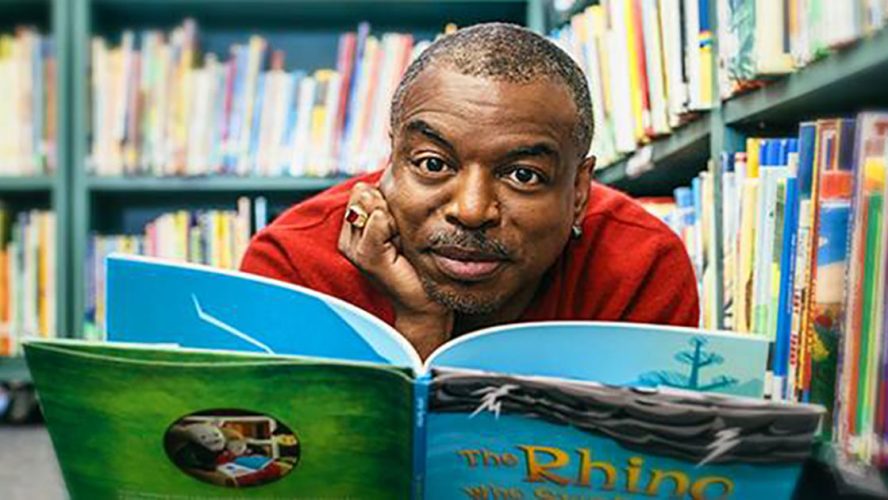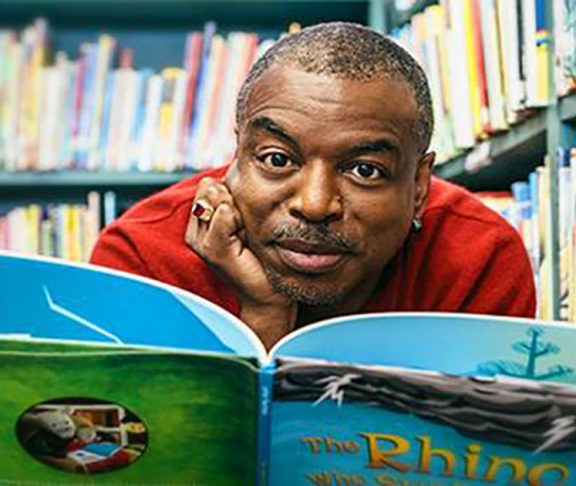“I believe that literacy is the single most important factor when looking at how we might mitigate all the gaps that face our children,” Burton says. “The achievement gap, the word gap, the hope gap — literacy is the key. If you can teach a child to read in at least one language, they have the opportunity to become a lifelong learner. And a lifelong learner is someone who will never finish the job of self-educating.”
A reading home
“It was my mother who inspired my love of learning, my love of literature and my love of the written word,” Burton recalls. “My mother was an English teacher and reading was mandatory in her household. When I was a child, my mother didn’t simply read to me, she read in front of me so I got that very important modeling. She set the example that reading is as necessary for the human species as breathing.”
“We have to expose children to enough different sources of reading materials until we find that gateway source that is going to turn them into a reader,” urges Burton. “The biggest challenge that we face is marshaling the will of the people to decide that education is indeed a priority for us.”
Solving the crisis
Burton believes whole-heartedly in the power of storytelling. “I believe that if we take any information we want our children to learn, any subject we choose to teach them — history, math, language, social studies — embed that information in storytelling, using the native storytelling idioms of that child’s culture, add in some gaming mechanics and a leveling-up system, we could turn this educational crisis around,” Burton explains.
From game-based learning to knowledge analytics, today’s educators are adopting new technologies to inspire the next generation of thinkers and tinkers. “If we fail to use the technology that is available to us to better educate our children, we will have missed the opportunity of the millennia,” he says.
“Parents ask me all the time, ‘how do I get my child to read more?’” Burton recalls. “I ask these two things: number one, does your child see you reading? We have to demonstrate to our children that it is an important part of life to be a reader. Number two, do you know what your child is passionate about? Because it is our passions that tend to drive our reading appetites.”

